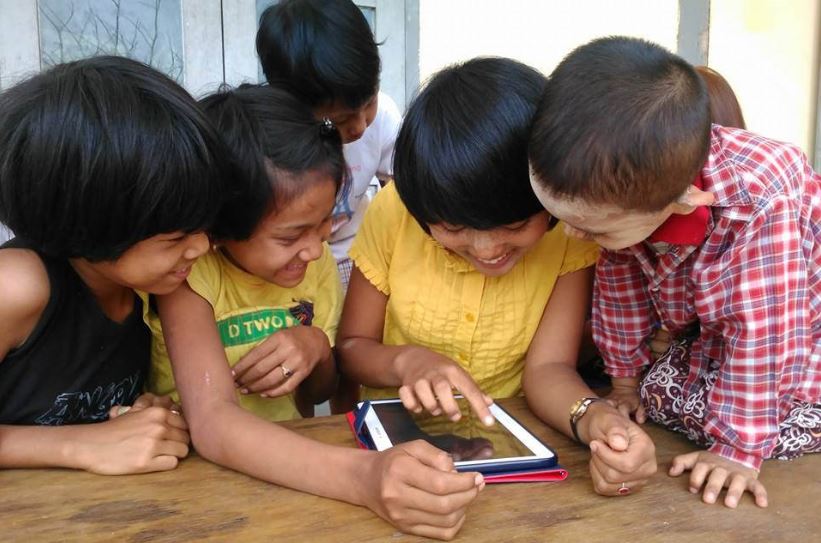Among the 48 incoming students our university hosted last semester, we found three young women whose home appears to be the number one dream destination for today’s sophisticated cosmopolitans all around the world: Myanmar.
Futur drei invited Thiri, Ein and Hnin over for an interview on culture, education and day drinking.
Right in the beginning it becomes clear that the girls are all but the shy, permanent smiling cliché of young Asian girls we might have had in mind before meeting them.
Instead, they are open and reflective.
Regarding our question towards differences in living in Germany compared to Myanmar the straight answer hits us: “Living is really different. I mean, we are a developing country and you are developed.” An obvious but still surprising statement coming from somebody talking about her home country.
We start by chatting about first impressions: Drinking all throughout orientation week was a bit too much for the three. In Myanmar, young women usually do not drink beer. The uncomfortable climate conditions during early spring at Lake Constance, too, were unusual.
Thiri says: “When my parents called me and they asked me if it is hot or cold in Germany today, I said I think it is a little bit hot. They asked about the temperature – It was about 10 degrees Celsius…” Hnin adds that it was summer at the same time in Myanmar with an average temperature of 45 degrees.
We find out that Ein, Thiri and Hnin live in a shared flat near the Hafenbahnhof which is new to them. In Myanmar it is common to live with the parents while studying or even in a hostel if you are not studying in your home town.
Comparing the educational system especially at Zeppelin and Yangon University, one key word comes up several times: Freedom. The German freedom to talk in class, to discuss politics and very important: to write on the walls. Ein tells us that people said she was stupid to study politics. They asked her: “Do you want to go to jail?” and didn’t even know about the existence of the International Relations department where she started her studies. Now, five years after the dissolution of the military junta in Myanmar, the girls recognize that the political consciousness has begun to develop in their home country – followed by economic and educational changes. Their expectations towards the new government are high and they are obviously willing to contribute to the ongoing evolution.
Hnin: “We changed the president now, but we don’t know how he will do for our country. I hope that we have a lot of improvement. It’s hard to say.”
Thiri knows where this improvement has to have its roots: “I think our citizens should be more educated.” As pioneers in their own country, the girls are studying a transition while being part of it. “I chose to study political science, and now my country is really changing, it’s like a miracle for me!”, Ein says.
To support Myanmar’s development towards a prosperous democracy and be “dutiful citizens” the three want to implement ways of thinking they learned about in Europe and even some particular ideas. “For example in supermarkets, you are trying to reduce the usage of plastic and then you have to pay for the packages. In our country, we use a lot of plastic bags when we go shopping. I think this idea should be applied in our country as well.”
At a certain point of our conversation Thiri, Ein and Hnin start asking questions themselves, for example about the so-called refugee crisis which they do not see as tense as many Germans – after all, everything works out well. And they understandably complained about some culturally insensitive, grumpy Germans they met with bad English skills thinking any Asian must be Chinese.
With a mixture of amusement and confusion, Ein tells us: “When we go to the supermarket, some say Ni hao and ask us if we are Chinese! Also, some people think that we understand Thai and Chinese. But we have a really different language.”
Still, the girls enjoyed their stay in Friedrichshafen a lot. The curiosity and individualism with which they came to Germany has intensified. They made one thing clear to us: We know way too less about many regions in the world. The fact that Thiri, Ein and Hnin now know a lot more about Europe might be a start in return.

